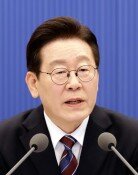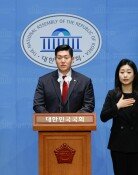Korea must urge US support promised to domestic companies
Korea must urge US support promised to domestic companies
Posted January. 25, 2024 07:47,
Updated January. 25, 2024 07:47
The U.S. government's attraction of large-scale investments from Korean electric vehicle and semiconductor companies is facing delays in the promised tax and subsidy support. One after another, support for Korean companies is being postponed while subsidies are given priority to American companies. The delays, for various reasons, are causing frustration among Korean companies as their profitability is expected to fall below their initial projections, leading to increased business uncertainty.
Hyundai Motor Group, which is currently constructing an electric vehicle plant in the U.S. state of Georgia, reportedly requested a tax credit from the U.S. Department of Energy (DOE) in August last year. However, the company has not yet received a clear answer. This poses a challenging situation as the factory is slated for completion in October of this year, following an investment of over 7 trillion won. There are concerns that if the U.S. government's allocated budget of $10 billion for related initiatives is depleted early, Hyundai Motor may face difficulties in obtaining the initially expected 400 billion won in tax benefits.
The benefits sought by Hyundai Motor Company align with the Inflation Reduction Act (IRA), which the Biden administration passed two years ago. The IRA offers a tax credit of up to 30% for investments in facilities in the United States geared toward the production of clean energy-related vehicles and equipment. These tax incentives, coupled with the U.S. government's subsidies exclusively for electric vehicles assembled in North America, played a significant role in influencing Hyundai Motor Group's decision to invest in the United States.
Similar concerns are arising among semiconductor companies that have invested in the United States. The U.S. Chips Act outlines plans to offer a total of $39 billion in subsidies to companies that have invested in semiconductor facilities within the country. However, reports indicate that the U.S. government is initially allocating about one-tenth of the support for its domestic company, Intel, particularly for its project to construct military semiconductor facilities. Conversely, the timing for the disbursement of subsidies amounting to trillions of won for Samsung Electronics, which is investing 22 trillion won in building a semiconductor factory in Texas, remains uncertain. An analysis suggests that Taiwan's TSMC, facing a similar situation, has already initiated measures to control the pace of its investments in the United States.
Additionally, Trump, the frontrunner for the upcoming U.S. presidential election, is pledging to 'abolish the IRA.' If the current trend of support delays persists and extends into the following year, Korean companies that have invested in the United States could face even more significant challenges. To mitigate the risk of policy and political uncertainties in the United States affecting Korean companies adversely, our government must take direct action in urging the United States to fulfill its commitment to support.







